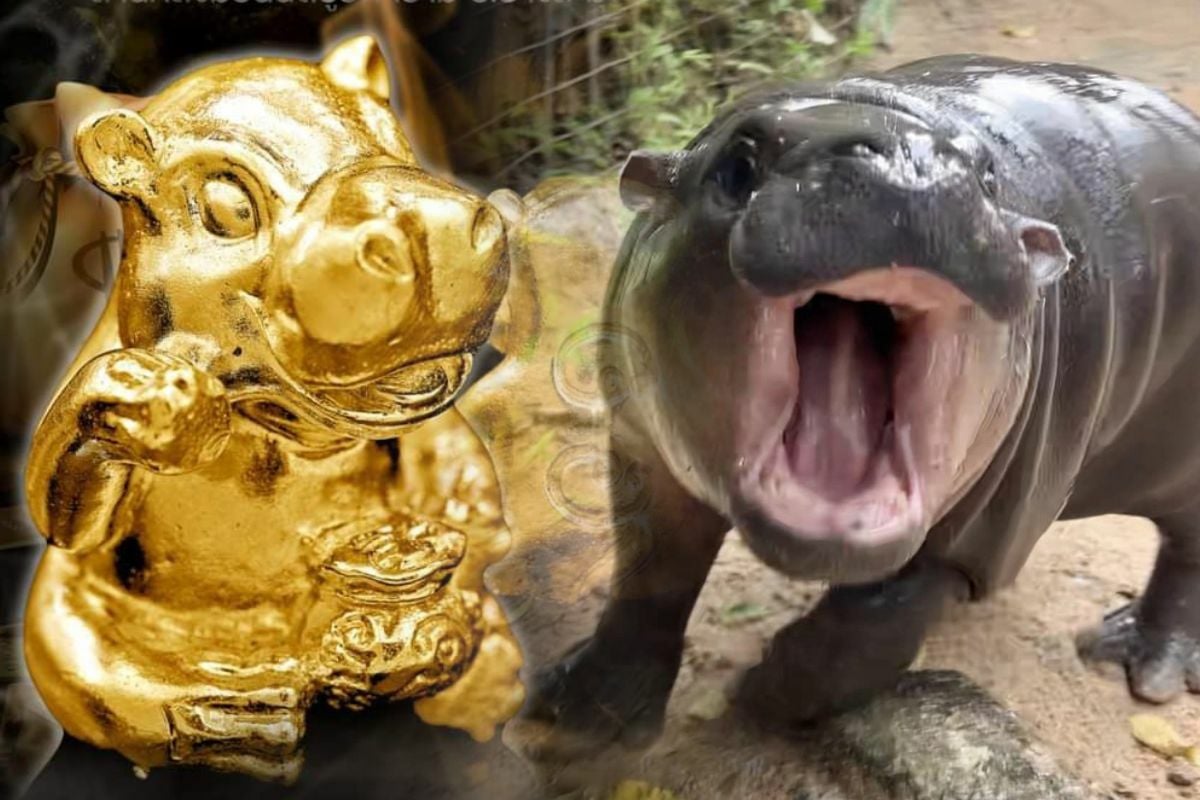
A wave of drama unfolded when Thai monks from a temple in the Bang Lamung district of Chon Buri introduced Moo Deng amulets, sparking concern among residents. Locals worry that these charms could make people excessively gullible.
The pygmy hippo Moo Deng has become a sensation among Thais and foreigners alike. Moo Deng has drawn thousands of visitors to the Khao Kheow Open Zoo, significantly improving the zoo’s financial situation this year.
Various products inspired by Moo Deng have been released into the market, including clothing, ice cream, cakes, postage stamps, flipflops, tumblers, and mugs. The Anant Buraparam Temple in the Bang Lamung district of Chon Buri province has also joined the trend by releasing Moo Deng amulets.
The newly launched Moo Deng amulet is called Moo Deng Kwak Sub (หมูเด้งกวัดทรัพย์), which means Moo Deng Beckoning Luck. The amulet features a small image of Moo Deng in a beckoning gesture, similar to the traditional Thai amulet known as Nang Kwak.
The amulet is available in four colours: blue titanium, gold, pure silver, and bronze. According to Amarin TV, the amulets are priced from 200 to over 2,500 baht, depending on the materials used. The most expensive edition is expected to be the Moo Deng amulet crafted from genuine gold.
The temple also released photographs of monks performing auspicious ceremonies on the amulets to make them sacred. It is believed that the Moo Deng amulet can bring luck and wealth to those who possess it.
For free, not for sale
Many Thai netizens expressed interest in buying the amulet while others criticised the monastery’s actions. They argue that Moo Deng is simply an animal and cannot bring luck or fortune to anyone. They view the amulet as encouraging superstition.
Attapon Sriharun, Director of the Zoological Park Organization of Thailand, also expressed concerns about the Moo Deng amulets. He stated that the creation of the amulets stems from a misunderstanding, as Moo Deng is just a pygmy hippo and lacks any supernatural abilities to make people wealthy.
Attapon suggested that it would be better to encourage people to learn more about Moo Deng and help preserve the species. However, he acknowledged that the monks’ actions did not break any laws. He called for the Office of the Consumer Protection Board or the National Office of Buddhism to investigate the matter.
One of the monks featured in the photos, Wiwekajarn, clarified that the temple crafted the amulets as keepsakes for visitors. They are offered free of charge but anyone who wishes to make merit can donate to the temple.
Funds raised would be used for temple construction projects, as well as to cover electricity and water expenses and other development projects within the temple.
The controversy surrounding the Moo Deng amulets is reminiscent of the earlier case of the Labubu yantra tattoo, launched in May. The yantra tattoo, inspired by Popmart’s popular art toy, was said to bring fortune to its owner. Netizens opposed this claim, stating that Labubu is merely a character and a toy, not a sacred or supernatural being.

The story Monks under ‘charm’ fire for selling Moo Deng amulets as seen on Thaiger News.
